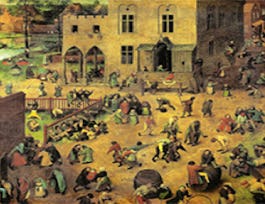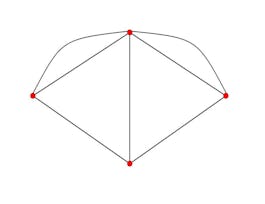Popularized by movies such as "A Beautiful Mind," game theory is the mathematical modeling of strategic interaction among rational (and irrational) agents. Beyond what we call `games' in common language, such as chess, poker, soccer, etc., it includes the modeling of conflict among nations, political campaigns, competition among firms, and trading behavior in markets such as the NYSE. How could you begin to model keyword auctions, and peer to peer file-sharing networks, without accounting for the incentives of the people using them? The course will provide the basics: representing games and strategies, the extensive form (which computer scientists call game trees), Bayesian games (modeling things like auctions), repeated and stochastic games, and more. We'll include a variety of examples including classic games and a few applications.


Game Theory
Taught in English
Some content may not be translated
504,452 already enrolled
(4,545 reviews)
Skills you'll gain
Details to know

Add to your LinkedIn profile
15 quizzes
See how employees at top companies are mastering in-demand skills


Earn a career certificate
Add this credential to your LinkedIn profile, resume, or CV
Share it on social media and in your performance review

There are 8 modules in this course
Introduction, overview, uses of game theory, some applications and examples, and formal definitions of: the normal form, payoffs, strategies, pure strategy Nash equilibrium, dominant strategies
What's included
11 videos2 readings2 quizzes3 discussion prompts
pure and mixed strategy Nash equilibria
What's included
7 videos2 quizzes
Iterative removal of strictly dominated strategies, minimax strategies and the minimax theorem for zero-sum game, correlated equilibria
What's included
6 videos2 quizzes
Perfect information games: trees, players assigned to nodes, payoffs, backward Induction, subgame perfect equilibrium, introduction to imperfect-information games, mixed versus behavioral strategies.
What's included
10 videos2 quizzes2 discussion prompts
Repeated prisoners dilemma, finite and infinite repeated games, limited-average versus future-discounted reward, folk theorems, stochastic games and learning.
What's included
7 videos2 quizzes2 discussion prompts
General definitions, ex ante/interim Bayesian Nash equilibrium.
What's included
6 videos2 quizzes
Transferable utility cooperative games, Shapley value, Core, applications.
What's included
5 videos2 quizzes
The description goes here
What's included
1 quiz
Instructors



Recommended if you're interested in Economics

Stanford University

The University of Tokyo

Stanford University

Yale University
Why people choose Coursera for their career




Learner reviews
Showing 3 of 4545
4,545 reviews
- 5 stars
71.51%
- 4 stars
22.23%
- 3 stars
3.89%
- 2 stars
1.14%
- 1 star
1.20%

Open new doors with Coursera Plus
Unlimited access to 7,000+ world-class courses, hands-on projects, and job-ready certificate programs - all included in your subscription
Advance your career with an online degree
Earn a degree from world-class universities - 100% online
Join over 3,400 global companies that choose Coursera for Business
Upskill your employees to excel in the digital economy
Frequently asked questions
Access to lectures and assignments depends on your type of enrollment. If you take a course in audit mode, you will be able to see most course materials for free. To access graded assignments and to earn a Certificate, you will need to purchase the Certificate experience, during or after your audit. If you don't see the audit option:
The course may not offer an audit option. You can try a Free Trial instead, or apply for Financial Aid.
The course may offer 'Full Course, No Certificate' instead. This option lets you see all course materials, submit required assessments, and get a final grade. This also means that you will not be able to purchase a Certificate experience.
When you purchase a Certificate you get access to all course materials, including graded assignments. Upon completing the course, your electronic Certificate will be added to your Accomplishments page - from there, you can print your Certificate or add it to your LinkedIn profile. If you only want to read and view the course content, you can audit the course for free.
You will be eligible for a full refund until two weeks after your payment date, or (for courses that have just launched) until two weeks after the first session of the course begins, whichever is later. You cannot receive a refund once you’ve earned a Course Certificate, even if you complete the course within the two-week refund period. See our full refund policy.

